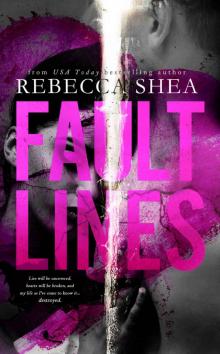- Home
- Anne Rivers Siddons
Hill Towns Page 5
Hill Towns Read online
Page 5
But I never repeated these incidents to Corinne. Some small sane part of me, buried deep, knew what she would make of them.
Later on, when I increased my sessions with her to three times a week, seeing for the first time a crack of daylight in the wall of my fear, Joe began to urge new things on me. Added involvement in the affairs of the college, when I already had more committee meetings and teas and coffees than I could say grace over; more evenings spent with old friends in their homes; more parties at ours.
“You just seem to have extra energy,” he said, when I finally protested mildly. “I thought you might feel like doing some things with me now.”
“Oh, darling, of course!” I cried. “I haven’t meant to neglect you. I didn’t realize I was….”
“Well,” he said, “I know this therapy stuff has been tough on you.”
So I joined the extra committees and went to, and gave, the parties. But I did not cut back on the therapy.
Finally, midway in the second year, I began to make trips off the Mountain with Corinne. Tiny ones, at first; really just drives to the base of the Mountain and back up, or a trip in her car over to a nearby shopping mall on the outskirts of Chattanooga, where I sat in the car and waited, eyes closed and heart pounding, while she went to the drugstore. I was wet with sweat and tears when we got back, and so weak I had to go home and lie down, but I could do it. Before, I could not have. Soon I was driving my car and she was in the passenger seat, and we began to go farther and stay longer. The trips were hard—I can never tell anyone how hard—but I knew I could do them and the fear would not kill me. On the day in January that we drove all the way to Atlanta and had lunch at a suburban Wendy’s without my taking a single Valium, Corinne announced it was time for me to make a few trips without her.
Instantly the fear was back in all its old, cold weight.
“I can’t,” I whispered. “I can’t do it by myself.”
“I didn’t say by yourself,” she said. “I said without me. You’re leaning too heavily on me. Get Joe to go with you. Surely he knows how important this is to you, how hard you’ve worked.”
“I haven’t told him about the trips,” I said, not meeting her eyes.
She said nothing.
When I asked him, he would not go.
“I just can’t, sweetie,” he said the first time. “Midterms is the worst possible time for me, what with Carlton and Hank out. Can it wait till early next quarter?”
Early the next quarter he brought a world-famous poet to campus for three weeks of seminars and receptions. It was a great coup, and I could see he could not interrupt the royal visit to drive to a Wendy’s or a Burger King thirty miles away with me.
In March he sprained his ankle playing tennis.
I took a triple dose of Valium and made the first trip by myself, in a white haze of sedation and terror. I don’t know why I didn’t kill someone. The second one I made on two Valiums. My third trip alone I only took one, though the fear was truly terrible. I told neither Joe nor Corinne I had gone alone.
I still saw nothing amiss in Joe’s refusals to go with me. We truly do see what we need to see, and only that.
In late April, Corinne wanted Joe and me to go away somewhere for a weekend off the Mountain.
“Go to a fancy hotel in Atlanta,” she said, grinning wickedly. “Order room service and drink to excess and screw your heads off. I can vouch for the weekend package at the Ritz Carlton in Buckhead myself.”
I laughed and made the reservation that afternoon. That night, over drinks, I told Joe about it. I thought he would be pleased with my accomplishment, and I knew he liked the Buckhead Ritz Carlton. He stayed there when he was in Atlanta for fund-raising trips with President Day or at alumni functions or SMLA meetings.
“What about it?” I said, leering over the rim of my vodka and tonic. “I could get a new nightgown for you to rip off. Or something exotic in the way of marital aids. We could rent a porn video.”
He did not speak, and he did not look at me.
“I just don’t think we should both be away at the same time, Cat,” he said finally. “What if…oh, what if Lacey wanted to come home all of a sudden? Wouldn’t you want to be here for Lacey?”
I told Corinne about it. I couldn’t not, not this time. She was silent for a time, and then she sighed, and got up and walked to her window and looked out at the new green that shawled the Mountain.
“I’m only going to make one speech, Cat, and then I’m not going to mention it again. You can do with it what you choose. If you need to terminate because of it, so be it. Will you listen?”
She did not look back at me.
“I’ll listen,” I said.
“OK. I think this whole thing—the fear, Joe’s peculiar reaction to your handling of that fear, and your extremely peculiar reaction to his reaction—is all about control. Control. Up here you can control your world…and what a world you’ve made. It’s orderly, it’s serene, it’s beautiful. Very few people on earth can live like you and Joe do, and almost no one can do it except in places like this. In the Domain. The famous Domain. You control your world, and you control Joe, and he controls you. And it’s all in the name of some kind of…specialness. Who in their right mind would want to give up being wonderful, special? Not Joe. Not you. I know you had an awful shock when you were a kid, and you had a few bad years with your grandparents. But look at the life you’ve lived since you got into the whole Trinity thing. I don’t think it’s safety you’re so afraid of losing, I think it’s this specialness. Up here you’re not just a housewife, you’re a Domainian. Joe is not just an English professor, he’s head of the English Department in the Domain. On the Mountain. You think he wants you to go running down to the flatland and leaving Eden whenever you want to? Hell, no; he’d have to go with you or lose you, and he doesn’t want to do either. Go on, Cat. Go by yourself, then. Hole up in the Ritz and read wonderful books and eat gorgeous food and swim and shop and drink champagne and watch TV, and see what the real world is like. If you can call the Ritz Carlton the real world, of course. If you don’t go now, I don’t think you ever will.”
It was a long speech for Corinne, and her square figure was taut with the passion of it. But she never did turn and face me. I literally could think of no words and stood silent.
“What if Lacey did, for some reason, want to come home?” I said in a small voice, knowing as I spoke how ridiculous I sounded.
“Cat, Lacey isn’t going to come home again,” Corinne said. “You know that, don’t you? You worked hard enough to see that she didn’t have to, and you succeeded. You know she isn’t going to come home. Joe knows.”
“Yes,” I whispered. “I know she isn’t.”
And I turned and walked out of Corinne’s office.
I did not go back. When I called to tell her I wanted to terminate, she said only, “Well, it’s probably time. You’ve done good work, and you can take it from here. We still friends?”
“Always,” I said, meaning it. “Always. I’ll never forget what you did for me.”
“Then send money,” she said, laughing, and I laughed too and hung up. I felt light and limp with relief. All was well between Corinne and me. All was as it used to be. I could still be her friend and have her at our parties, and Joe would still laugh with her at faculty meetings and at the club. And spring had come, the ineffably beautiful green spring on the Mountain. All the Domain bloomed with it.
I did not go to the Ritz Carlton in Atlanta. I let the sweet swirl of social activities that catches us up in spring wash over me and planned for the day in June when Lacey would come home for her short summer break, before going back for the first quarter of her senior year at Berkeley. Come home and then go away again. Corinne was right. Lacey was not ever coming back for good to the Mountain. I had indeed seen to that.
When she was born, her eyes were not the indigo of the newborn but so clear and light a blue they looked almost silver, washed in a sheen of light that might have been tears but was not. She was a happy baby from the very first. I cannot remember a time when Lacey did not crow, or gurgle, or laugh outright. It was Joe’s laugh, froggy and enchanting, ridiculous in a tiny baby. Everyone was enthralled with her.
I think I sensed something was wrong from the first instant I held her, something to do with the strange, beautiful eyes, though it was only much later that I let myself know. When I did, long past the time that Joe and the doctor suspected, when even I could not explain her unfocused stare as a baby’s undeveloped muscles, I felt a quick, fierce stab of gratitude beneath the pain and grief. I pushed it away, hating it. But the aftersense lingered.
“It could have been so much worse,” I said to Joe, trying to comfort him in his anguish. “It could have been something fatal. It could have been something that would hurt her, cause her pain. It could have been something…disfiguring.”
“Well, she’s not going to have to worry about how she looks, is she?” he said, through almost the only tears I had ever seen in his eyes. “Christ, Cat, you think this isn’t going to cause her pain? You know how the world treats blind people—like retards!”
“Well then, she just won’t go out into the world,” I said savagely. “She’ll stay on the Mountain with us. It’s a wonderful life; she can have everything up here. She’ll hardly know she’s…without sight.”
I could not say “blind” for a long time.
“You’re glad, aren’t you? Now you’ll never have to leave. She’ll be your anchor to the Mountain.”
I merely looked at him, holding my baby.
“I’m sorry, Cat,” he whispered, his face crumpling. “I’m sorry. Forgive me. It’s just…I wish I could exchange my eyes for hers. I…she’ll never see this beautiful place. She’ll never see your beautiful face….”
I reached out for him over the baby’s head, and he came into my arms, and for a long moment I held them both, trying with all the force of my being to pump some sort of healing into them. Perhaps I succeeded just a bit with Joe. He did not cry again, not that I saw, at any rate. Not for Lacey.
Lacey needed no healing from me and never has.
We kept her at home. It was Joe’s decision as much as mine, perhaps even more so. I never had the impression that he was humoring me. It was not hard to adapt our small house to a blind child, or at least not to one of Lacey’s nature. She was fearless and pragmatic to a degree that simply astounded me, who am neither. If she fell, she picked herself up and toddled on. If she bumped something, she fussed a little and went about her business. We padded corners and secured rugs and moved bric-a-brac out of reach and tried our best to treat her as a normal child. She was light-years ahead of us in that respect.
Because she had never known sight, she did not seem to sense dangers she could not see; we had to watch her there. Her other senses were awesome. Even before she received special schooling, she could read her way around her world with her ears and nose and fingertips. She talked early and volubly, and her memory was phenomenal. Corinne told us her IQ—“if that idiocy matters to you”—was probably astonishing.
“She doesn’t have to live with limits,” Corinne said, early on. “With her intelligence and temperament, she can probably have almost any sort of life she wants. Do almost anything, go almost anywhere. There are special schools to help her live just about as normally as any other child. I’ve looked into them—”
“She’s going to stay here,” Joe said. “We’re going to teach her. Later on she’ll have tutors for the things she needs. I’ve already been in touch with the National Institute for the Blind; they’ve sent literature. When the time comes, she’ll have everything she needs—”
“She needs the real world, Joe,” Corinne said.
“This is her real world,” he said. “There’s nothing she needs that she can’t have here. Who wouldn’t love growing up in this place? Nobody’s going to think of her as a blind kid here.”
“She is a blind kid,” Corinne said. “She needs to go through and past that. So do you two. You can’t keep her locked away in a tower all her life. What happens when she wants something she can’t get up here? What happens when she marries and her husband lives somewhere else…if you all ever let anyone near enough to marry her? What happens when you die, or do you plan on not doing that? Did you ever read The Secret Garden?”
They came as close to quarreling over Lacey as they ever did over anything. After that talk Joe simply would not speak of her to Corinne. And she stopped bringing the matter up. Lacey stayed on the Mountain with us, in our little house and walled garden, and was taught Braille and simple coping skills by a young tutor who came each day from off the Mountain. She managed her schoolwork with ease and joy and played contentedly in her nursery or our garden with the children of friends and faculty, who came each afternoon and weekend, and had toys and pets and her radio and phonograph. She loved listening to television.
Joe and I spent virtually all our free time with her; I remember those early years as the years when the Mountain began to come to us. We did not go out, but we did not lack for companionship, and neither did she. She was a pretty, puckish child, small and rounded, like my mother, but with Joe’s thick fair hair. And the beautiful, light-spilling blue eyes were riveting. You literally forgot they saw nothing when she fixed them on you, following the sound of your voice. Her laughter rang like chimes. Everyone who met her fell in love with her. Somehow, we managed not to spoil her. I really think her own sunniness and enormous curiosity saw to that.
“I forget for hours and sometimes days at a time that she can’t see,” Joe used to say, and I agreed. I was proud and grateful for managing to fashion a world for our child that made sight virtually unnecessary. I was happy in those days, no less happy than I have been in our later ones. It seemed to me that all the value and beauty in the world lay here in microcosm.
I never looked far ahead. For a long time, I saw no need to.
When she was ten, Joe and I began to plan the house we wanted to live in for the rest of our lives. We’d been talking about it for years, and we’d finally bought a lot. It was the back four acres of an old estate on the very lip of the Steep, thick with first-growth hardwoods and dogwood and laurel and rhododendron, sweeping level and sweet up to the granite outcropping that guarded the land from the air. It had belonged to the first patrician general who had retreated to the Mountain after the “late unpleasantness,” to lick his wounds and form a mountain fastness where sons of the Confederacy might learn in their turn the precise things that led their fathers into war. The last of his line had died, and Joe had his bid in to the estate lawyers indecently soon after the service at All Souls. There were much higher bids, but they came from off the Mountain, and I suppose the trustees saw their duty clear. We had an architect friend translate our ideas into drawings, and on the night we sat down with him to review them, Lacey sat with us, her head against Joe’s knee. We paid little heed to her. She often sat like that when we had friends over. She seldom interrupted. More often than not, she was off in her own world, the one behind her eyes where we could never follow. She stayed there a lot.
Philip talked of how the new rooms would look, and how we might live in them, and how he thought the furniture and artifacts of our lives might fit there. He talked of the air and sun and space and the magnificent panorama of flatland and foothills that the site commanded, of how it would come right into the house to be a part of it as the stones and mortar and oak beams were. He talked of how space and air were a design element, how the walls themselves would seem to open endlessly to sun and rain and the turn of the seasons.
“I see it as a house without boundaries,” he said. “As a place where you won’t know where you leave off and the woods and sky start. This is a nice starter house, kids, but these little rooms are like living in shoe boxes. Like a little rabbit warren. Tacky. The house I’m going to build for you will be like living in the woods, with the trees for a roof and all the world for a garden.”
Lacey began to scream. Within seconds she was hysterical and so near breathlessness we finally had to call the pediatrician. It was only after an injection of sedative and much holding and rocking that we got words out of her.
Lacey was afraid she would fall out of her new house into thin air. And Philip’s words about the only house she knew had devastated her.
“That’s not how they are!” she said of the rooms he had described as shoe boxes, rabbit warrens. “It’s not! This house is beautiful! I hate the new house! I won’t live there! I won’t leave here!”
It was the first time I realized that the world Lacey had built for herself behind her eyes was far grander, more beautiful, than anything on the earth could be. That when we said “house,” Lacey saw something wonderful, splendid, unimaginable to us. How not? What had she for comparison?
And it was the first time I saw clearly what we were doing to her, Joe and I, by keeping her on the Mountain, away from the rest of the world.
I went to see Corinne Parker the next morning. By that fall, Lacey was enrolled in the long-term children’s rehabilitation program at the Cleveland Sight Center. When she went away in September to learn to live in the world, Joe went with her, of course, not me. Corinne had said that was best, and so had the people at the center.
“She’s already afraid,” Corinne said. “It’s inevitable, with her intuition, that she’ll catch your fear of leaving, and not understand it, and think she’s going into danger out there. Let Joe take her alone. She understands he has a job and can’t stay with her, and it’ll be easier for her to let him go. Don’t cry, Cat. This is best and it’s high time. Her real life starts now.”
But I did cry. Not only for my child, my child of the silver eyes who in her blindness saw palaces and unicorns and wonders and now must learn to see only reality, but for Joe, who lived in an agony of love for her and must now leave her to the ministrations of strangers—and for me. I would miss her as I would miss my hands or the beat of my own heart, and I would fear for her each moment that passed.

 Colony
Colony Nora, Nora
Nora, Nora House Next Door
House Next Door Homeplace
Homeplace Downtown
Downtown Peachtree Road
Peachtree Road Sweetwater Creek
Sweetwater Creek Fault Lines
Fault Lines Low Country
Low Country The Girls of August
The Girls of August Burnt Mountain
Burnt Mountain Islands
Islands